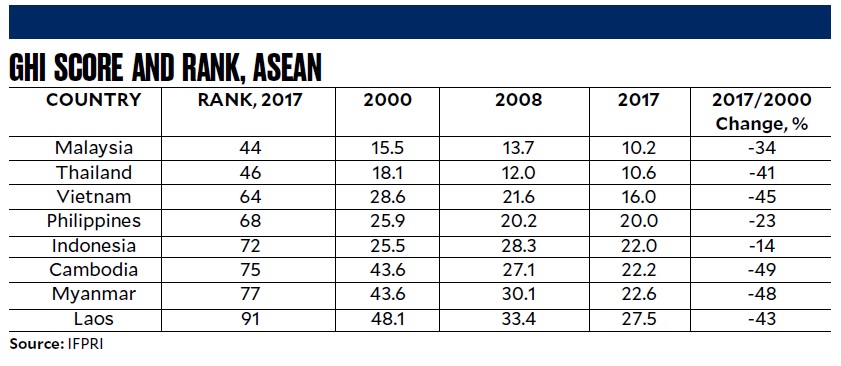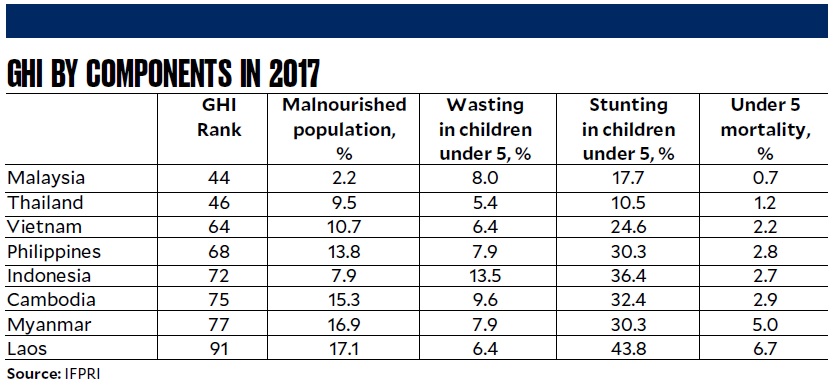The Global Hunger Index (GHI) comprehensively measures and tracks hunger at the global, regional, and national levels. The International Food Policy Research Institute (IFPRI) calculates GHI scores each year to assess progress in combating hunger. The 2017 GHI has been calculated for the 119 countries for which data are available.
The GHI is designed to raise awareness of the struggle against hunger and call attention to the areas of the world in greatest need of additional resources to eliminate hunger.
Given the multidimensional nature of hunger, GHI scores are based on four metrics:
1. Undernourishment: the share of the population that is undernourished (that is, whose caloric intake is insufficient); 2. Child wasting: the share of children under the age of five who are wasted (that is, who have low weight for their height, reflecting acute undernutrition); 3. Child stunting: the share of children under the age of five who are stunted (that is, who have low height for their age, reflecting chronic undernutrition); and 4. Child mortality: the mortality rate of children under the age of five (in part, a reflection of the fatal mix of inadequate nutrition and unhealthy environments).
Fourteen countries had index scores of less than five. The low score means high achievement. They include diverse countries like Bosnia, Chile, Cuba, Kuwait, Turkey and Uruguay. Advanced countries were not rated. Among the eight Asean countries rated, the Philippines ranked fourth behind Malaysia, Thailand and Vietnam, the last two being rice exporters. Indonesia is fifth. However, rice exporters Cambodia and Myanmar ranked low with the 7th and 8th slots.
What about improvements since 2000? Cambodia, Myanmar, Vietnam, Laos and Thailand posted dramatic surges at 40 to 50 percent. Indonesia and the Philippines recorded the slowest advance.
Malnourishment: The Philippines ranked 5th among the eight Asean countries, just slightly ahead of Cambodia.
Wasting in Children: The Philippines tied with Myanmar in the proportion of wasting in children under five years at 7.9 percent.
Stunting in children: The Philippines tied with Myanmar at 4th slot with some 30 percent of the children under five that were stunted. Cambodia, Indonesia and Laos rated low in this index.
Child Mortality: The Philippines trailed Malaysia, Thailand, Vietnam and Indonesia.
Among the 17 Global Sustainable Development Goals (SDG) for Vision 2030, Goals No. 2 (Zero Hunger) and Goal 3 (Health and Well Being) rank very high, just after Goal 1 (No Poverty).
Poverty and hunger are correlated. The higher the income, almost always the lower the hunger and the better the health. The Philippines has a long way to go to alleviate hunger and poverty. Among the Asean-5, it is behind in Poverty Incidence, Hunger and Food Security Indices.
The Philippine Development Plan 2017-2022 targets to reduce national poverty to 14 percent by 2022 from 21.6 percent in 2015. Much will hinge on the lowering of rural poverty to 20 percent in 2022 from 30 percent in 2015.



